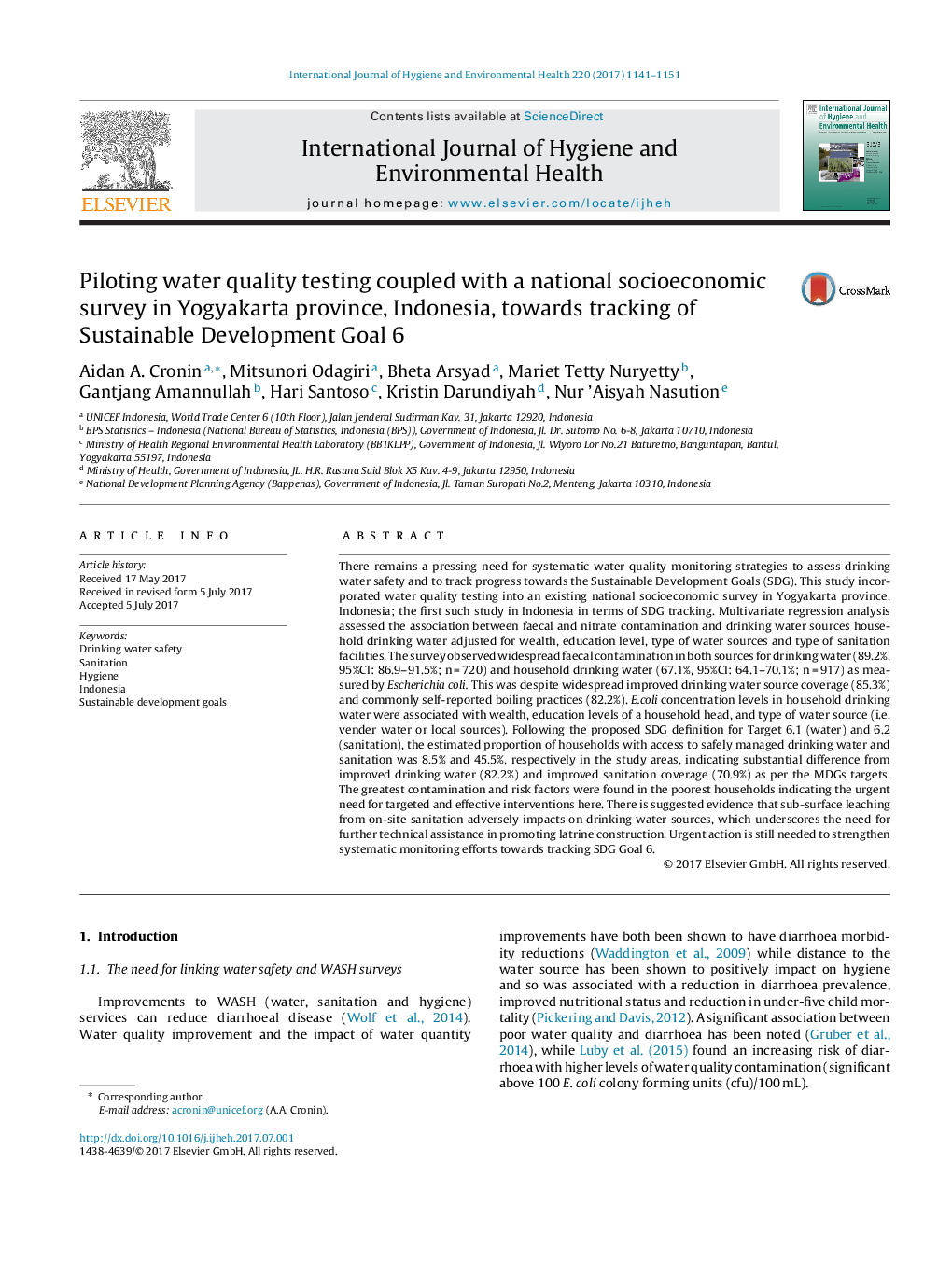| کد مقاله | کد نشریه | سال انتشار | مقاله انگلیسی | نسخه تمام متن |
|---|---|---|---|---|
| 5560458 | 1561870 | 2017 | 11 صفحه PDF | دانلود رایگان |
There remains a pressing need for systematic water quality monitoring strategies to assess drinking water safety and to track progress towards the Sustainable Development Goals (SDG). This study incorporated water quality testing into an existing national socioeconomic survey in Yogyakarta province, Indonesia; the first such study in Indonesia in terms of SDG tracking. Multivariate regression analysis assessed the association between faecal and nitrate contamination and drinking water sources household drinking water adjusted for wealth, education level, type of water sources and type of sanitation facilities. The survey observed widespread faecal contamination in both sources for drinking water (89.2%, 95%CI: 86.9-91.5%; n = 720) and household drinking water (67.1%, 95%CI: 64.1-70.1%; n = 917) as measured by Escherichia coli. This was despite widespread improved drinking water source coverage (85.3%) and commonly self-reported boiling practices (82.2%). E.coli concentration levels in household drinking water were associated with wealth, education levels of a household head, and type of water source (i.e. vender water or local sources). Following the proposed SDG definition for Target 6.1 (water) and 6.2 (sanitation), the estimated proportion of households with access to safely managed drinking water and sanitation was 8.5% and 45.5%, respectively in the study areas, indicating substantial difference from improved drinking water (82.2%) and improved sanitation coverage (70.9%) as per the MDGs targets. The greatest contamination and risk factors were found in the poorest households indicating the urgent need for targeted and effective interventions here. There is suggested evidence that sub-surface leaching from on-site sanitation adversely impacts on drinking water sources, which underscores the need for further technical assistance in promoting latrine construction. Urgent action is still needed to strengthen systematic monitoring efforts towards tracking SDG Goal 6.
353
Journal: International Journal of Hygiene and Environmental Health - Volume 220, Issue 7, October 2017, Pages 1141-1151
